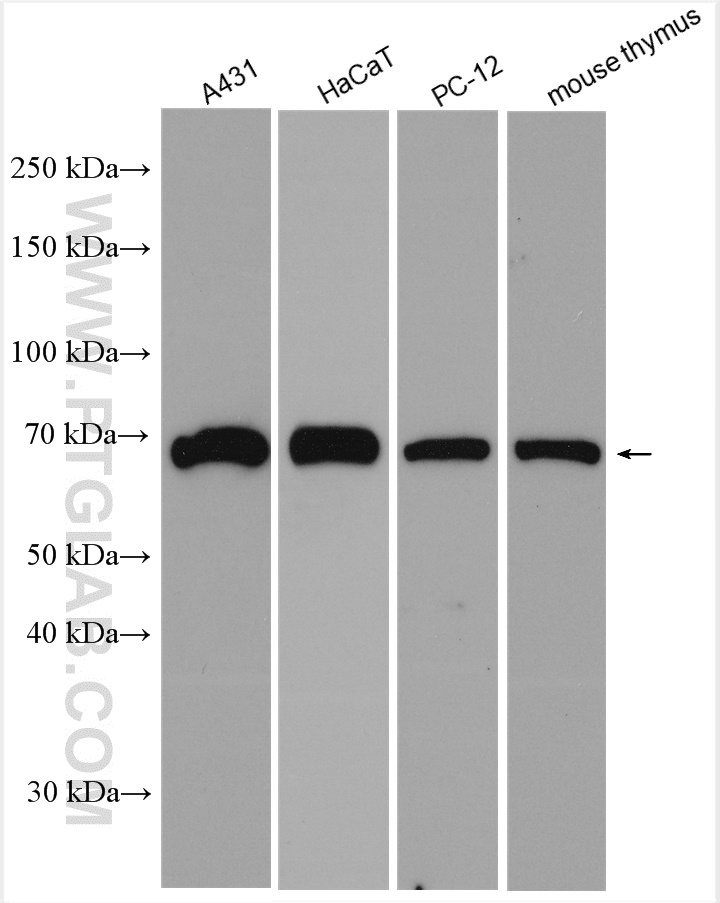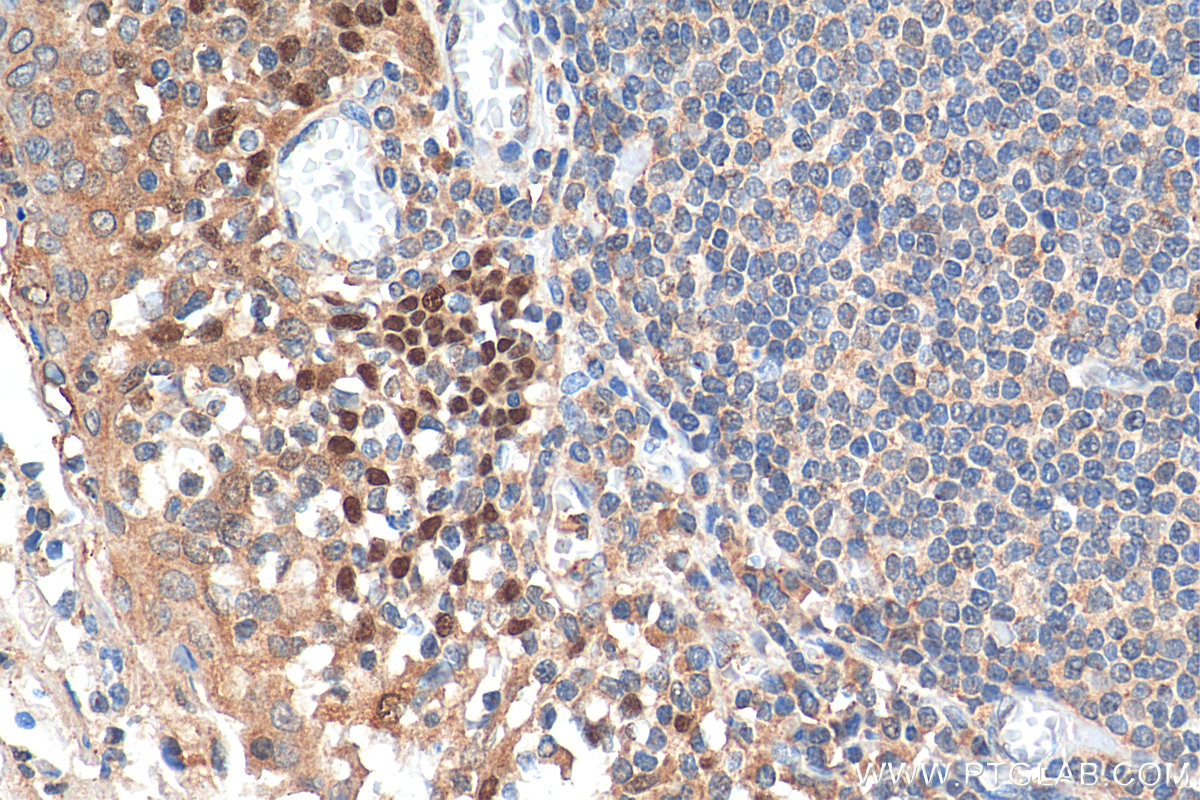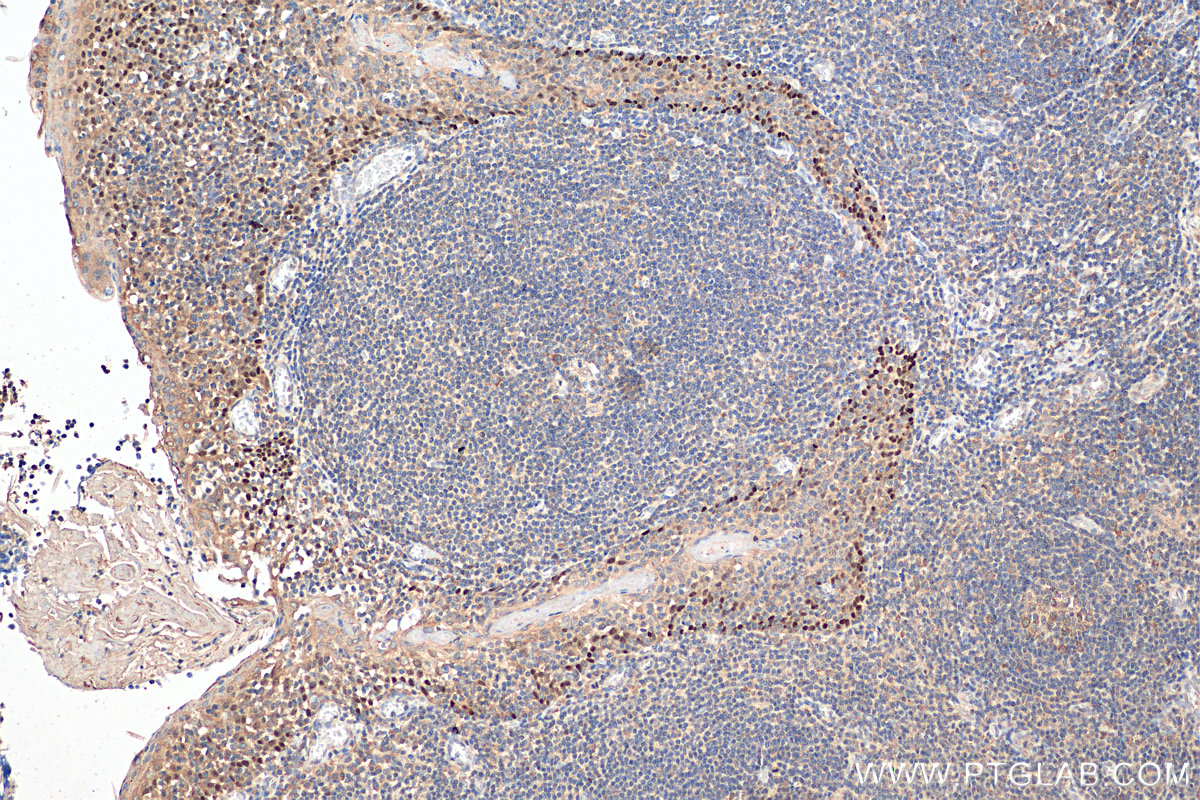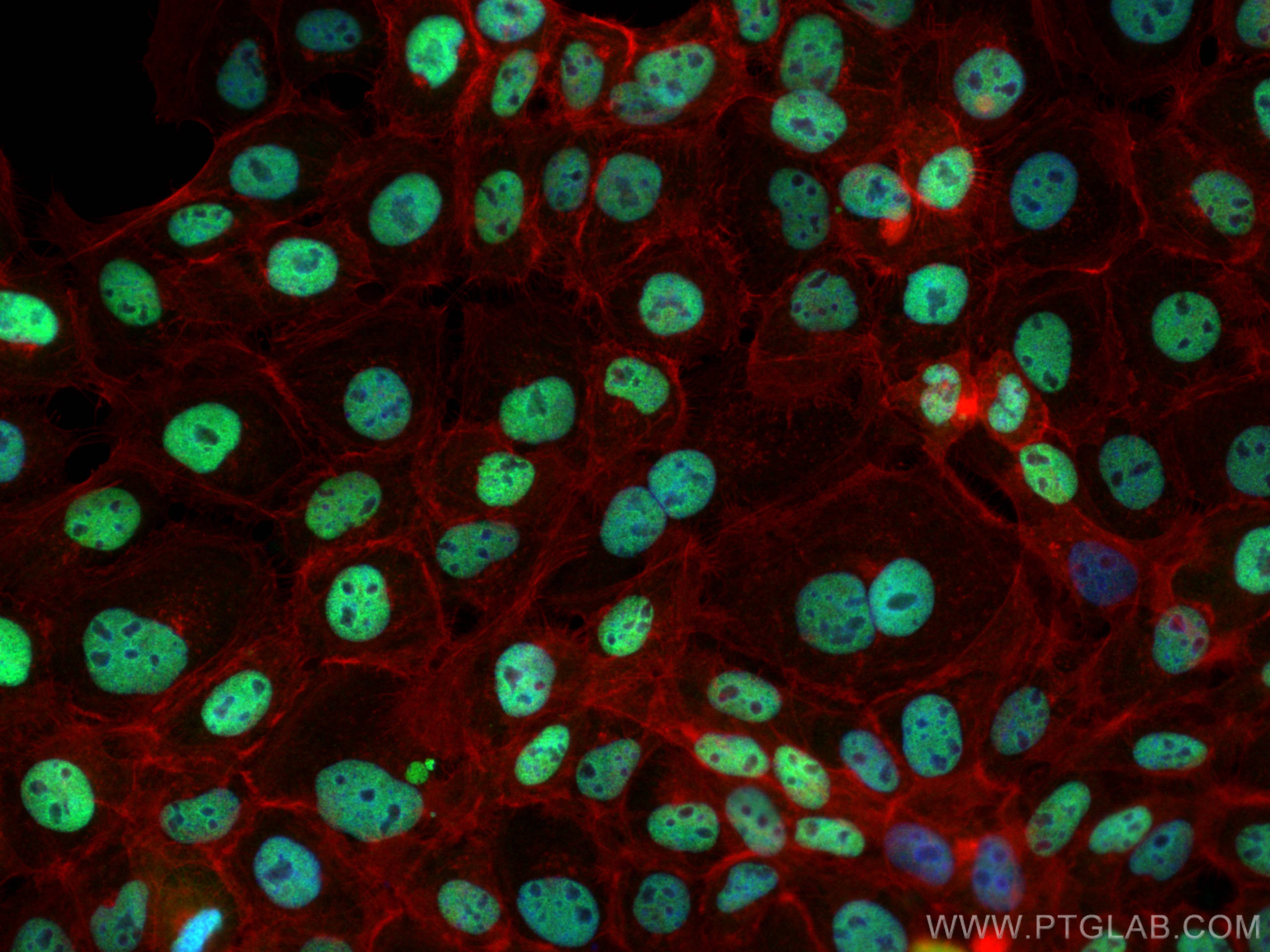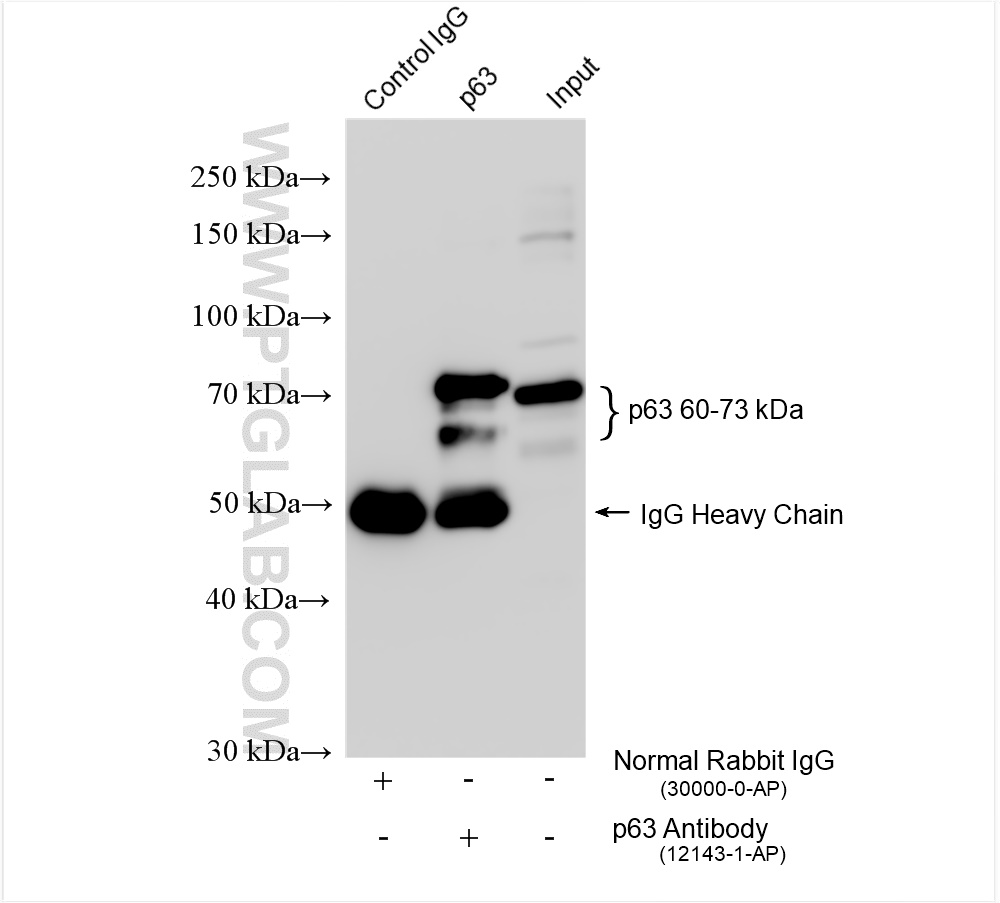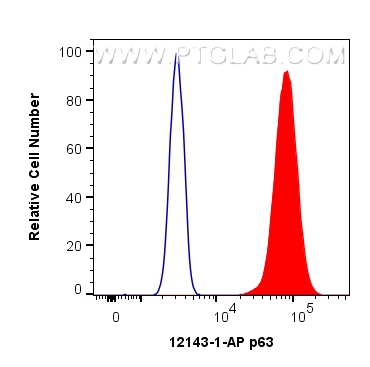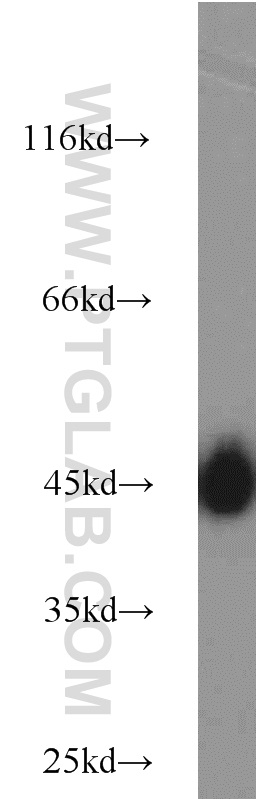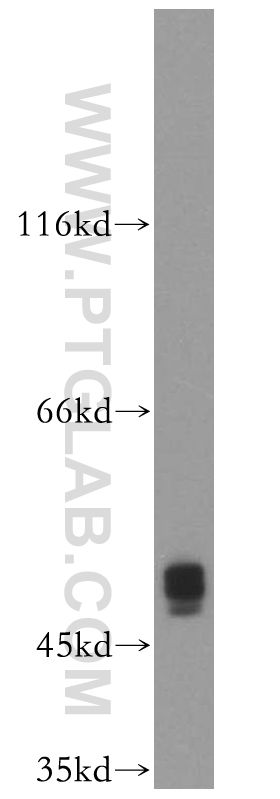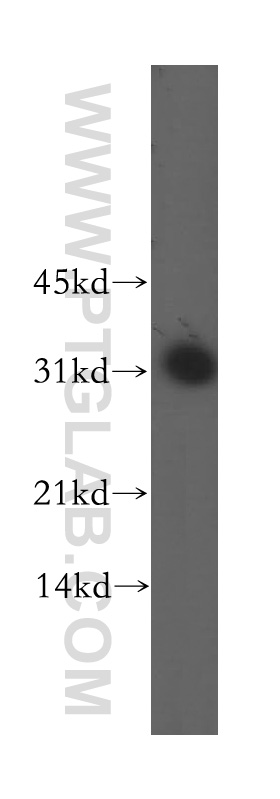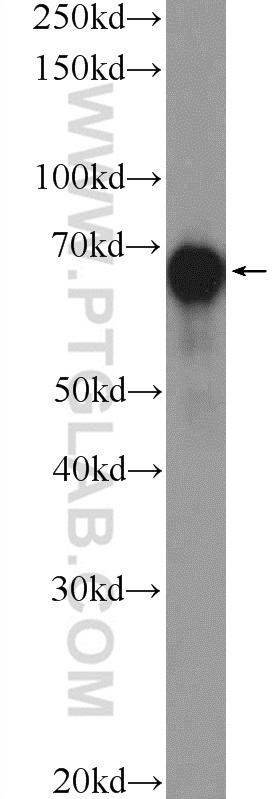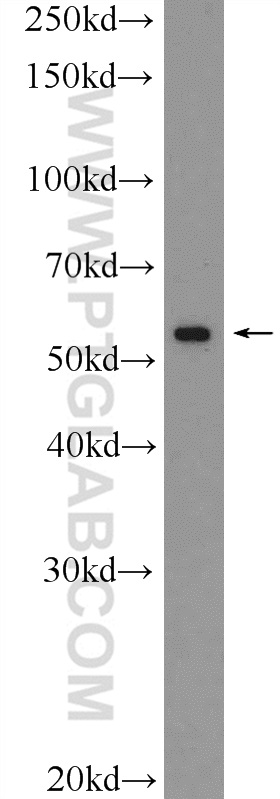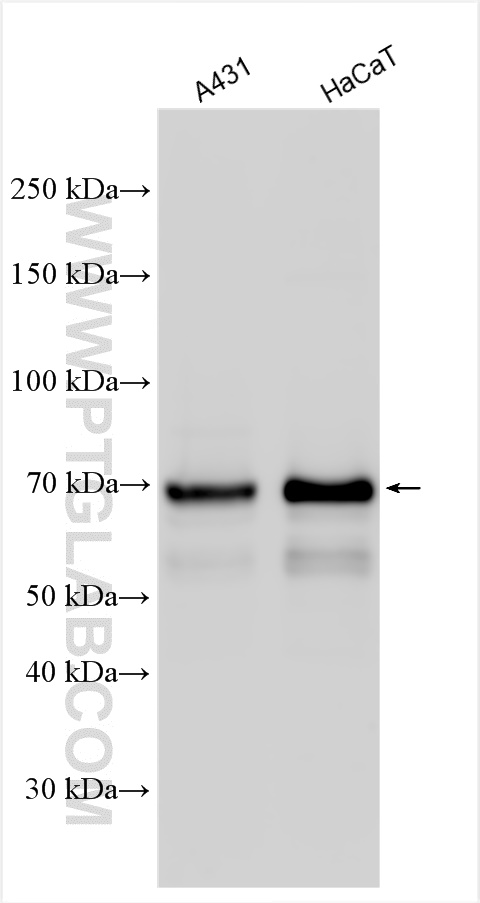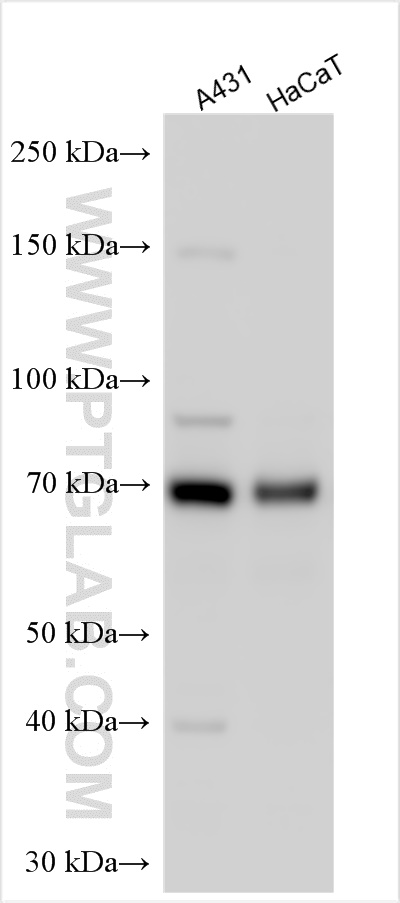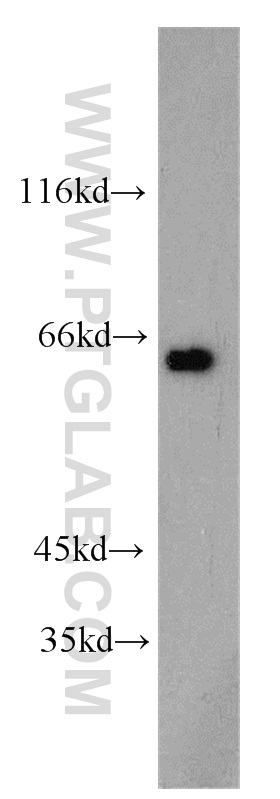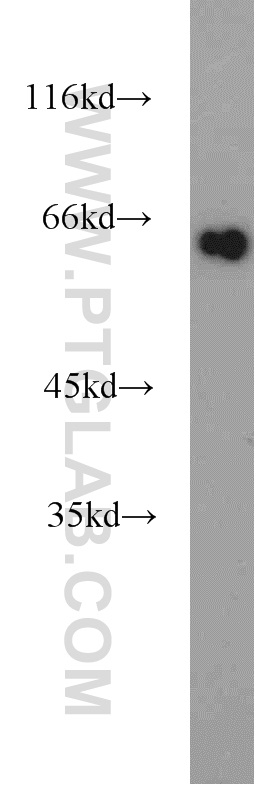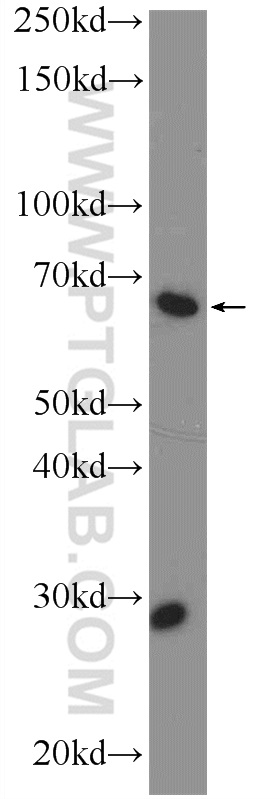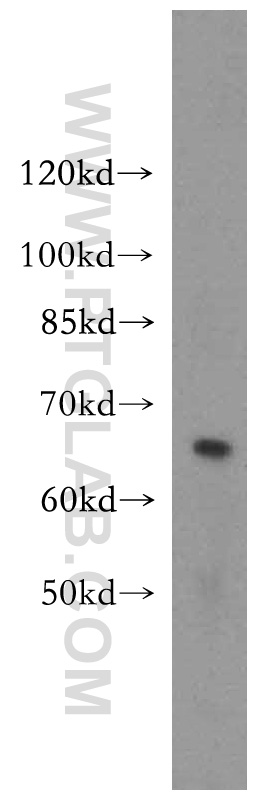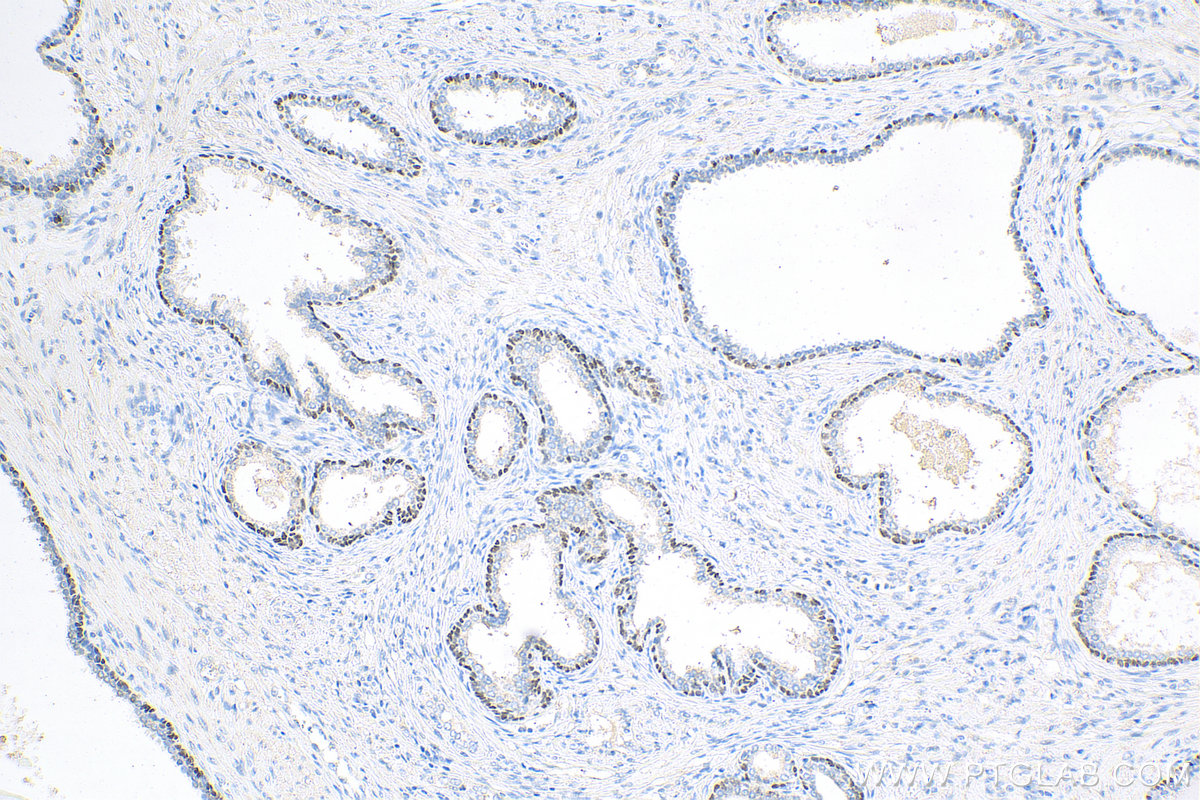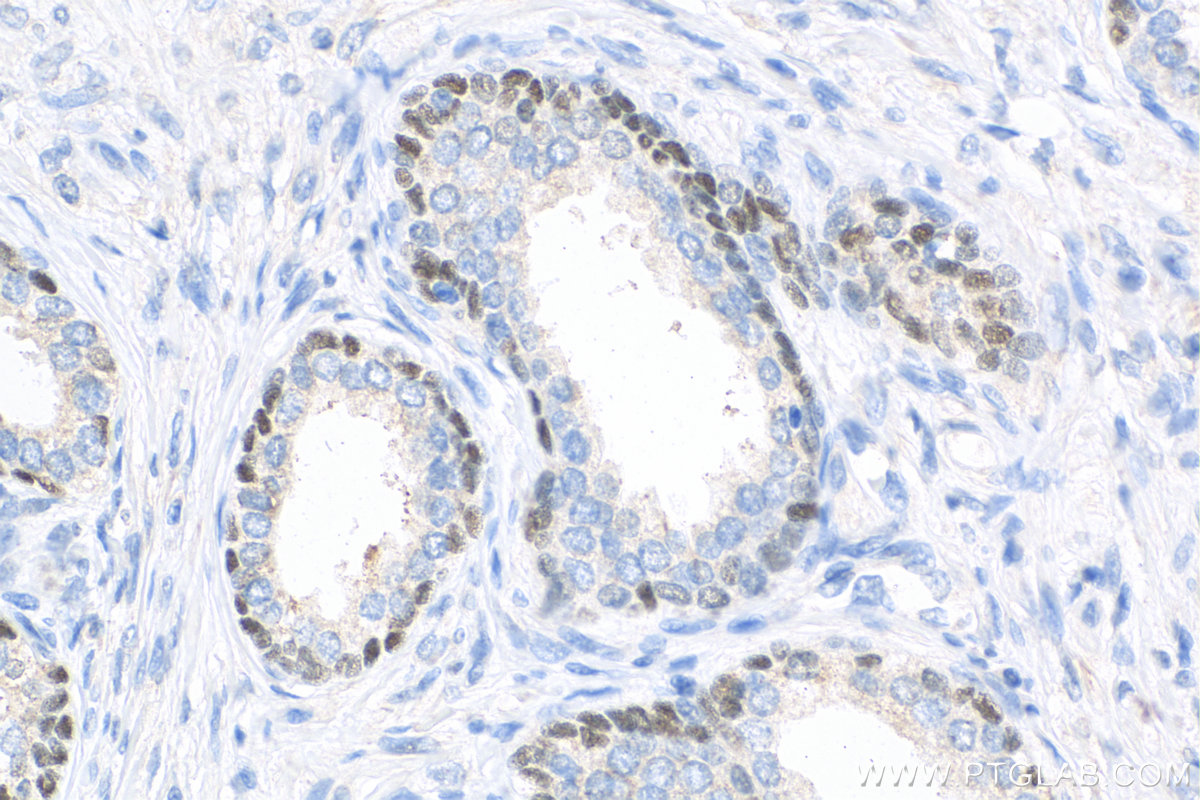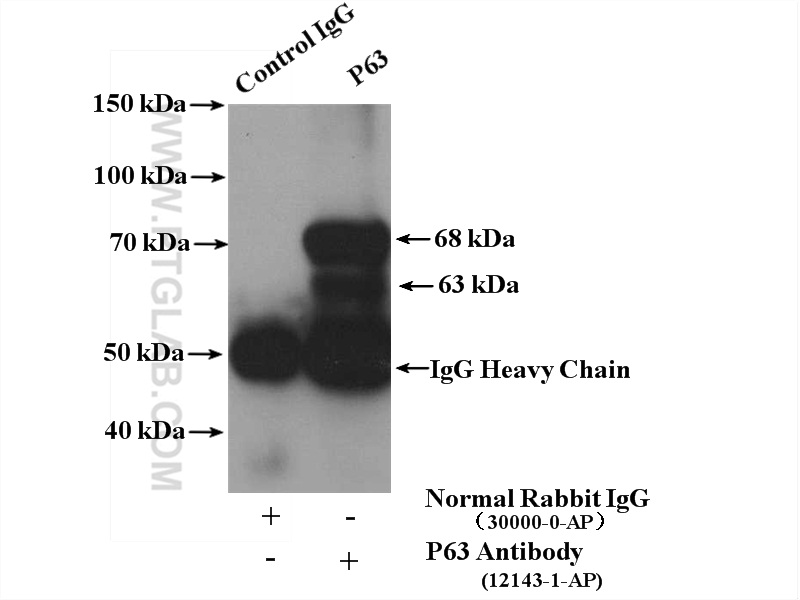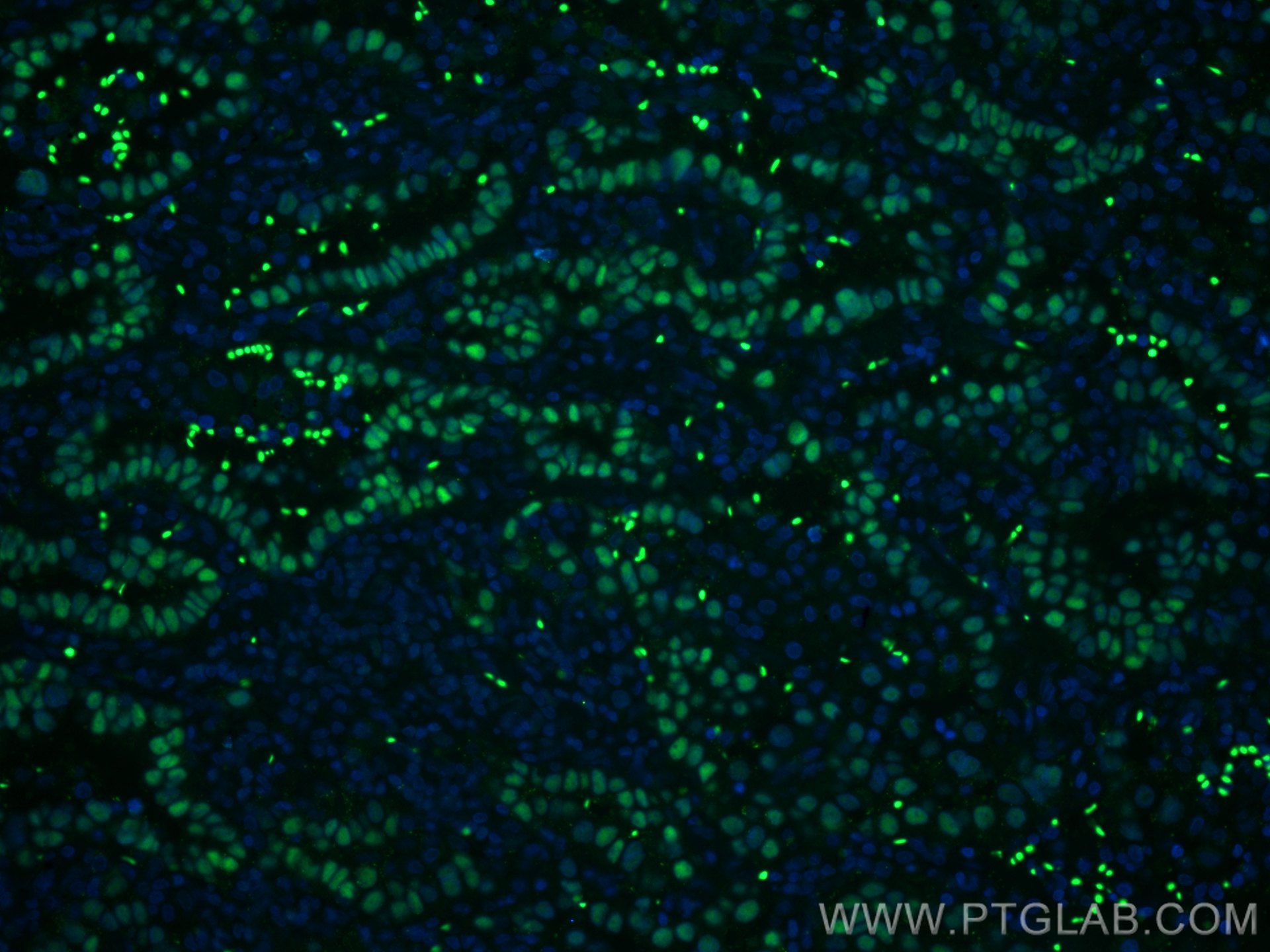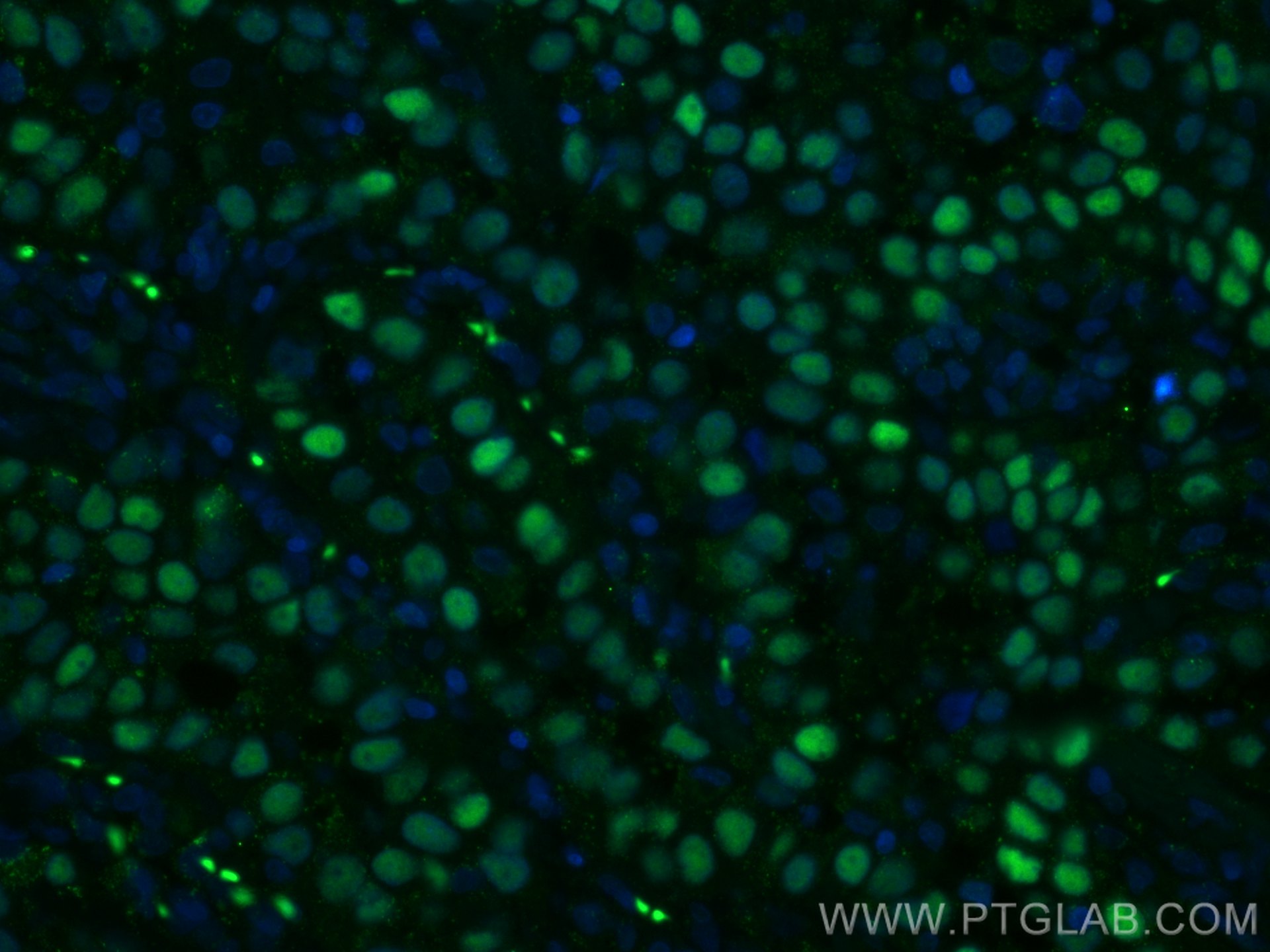- Featured Product
- KD/KO Validated
p63 Polyclonal antibody
p63 Polyclonal Antibody for FC, IF/ICC,IF-P, IHC, IP, WB, ELISA
Host / Isotype
Rabbit / IgG
Reactivity
human, mouse, rat
Applications
FC, IF/ICC,IF-P, IHC, IP, WB, ELISA and More (2)
Conjugate
Unconjugated
验证数据展示
经过测试的应用
| Positive WB detected in | A431 cells, human heart tissue, mouse heart tissue, U-937 cells, Apoptosised HeLa cells, HaCaT cells, PC-12 cells, mouse thymus tissue |
| Positive IP detected in | A431 cells |
| Positive IHC detected in | human tonsillitis tissue, human prostate cancer tissue Note: suggested antigen retrieval with TE buffer pH 9.0; (*) Alternatively, antigen retrieval may be performed with citrate buffer pH 6.0 |
| Positive IF detected in | A431 cells, human lung cancer tissue |
| Positive FC detected in | A431 cells |
推荐稀释比
| Application | Dilution |
|---|---|
| Western Blot (WB) | WB : 1:500-1:3000 |
| Immunoprecipitation (IP) | IP : 0.5-4.0 ug for 1.0-3.0 mg of total protein lysate |
| Immunohistochemistry (IHC) | IHC : 1:200-1:800 |
| Immunofluorescence (IF) | IF : 1:400-1:1600 |
| Flow Cytometry (FC) | FC : 0.40 ug per 10^6 cells in a 100 µl suspension |
| It is recommended that this reagent should be titrated in each testing system to obtain optimal results. | |
| Sample-dependent, Check data in validation data gallery. | |
产品信息
12143-1-AP targets p63 in WB, IP, IHC, IF, FC, CoIP, ChIP, ELISA applications and shows reactivity with human, mouse, rat samples.
| Tested Applications | FC, IF/ICC,IF-P, IHC, IP, WB, ELISA |
| Cited Applications | ChIP, CoIP, IF, IP, WB |
| Tested Reactivity | human, mouse, rat |
| Cited Reactivity | human, mouse, rat |
| Immunogen | p63 fusion protein Ag2791 种属同源性预测 |
| Host / Isotype | Rabbit / IgG |
| Class | Polyclonal |
| Type | Antibody |
| Full Name | tumor protein p63 |
| Synonyms | AIS, B(p51A), B(p51B), CUSP, deltaNp63, EEC3, KET, LMS, NBP, OFC8, p40, p51, p53CP, p63, p73H, p73L, RHS, SHFM4, TP53CP, TP53L, TP63, TP73L, Tumor protein 63, tumor protein p63, Tumor protein p73 like |
| Calculated Molecular Weight | 680 aa, 77 kDa |
| Observed Molecular Weight | 63-68 kDa |
| GenBank Accession Number | BC039815 |
| Gene Symbol | TP63 |
| Gene ID (NCBI) | 8626 |
| RRID | AB_10597397 |
| Conjugate | Unconjugated |
| Form | Liquid |
| Purification Method | Antigen affinity purification |
| UNIPROT ID | Q9H3D4 |
| Storage Buffer | PBS with 0.02% sodium azide and 50% glycerol pH 7.3. |
| Storage Conditions | Store at -20°C. Stable for one year after shipment. Aliquoting is unnecessary for -20oC storage. |
背景介绍
实验方案
| Product Specific Protocols | |
|---|---|
| WB protocol for p63 antibody 12143-1-AP | Download protocol |
| IHC protocol for p63 antibody 12143-1-AP | Download protocol |
| IF protocol for p63 antibody 12143-1-AP | Download protocol |
| IP protocol for p63 antibody 12143-1-AP | Download protocol |
| Standard Protocols | |
|---|---|
| Click here to view our Standard Protocols |
发表文章
| Species | Application | Title |
|---|---|---|
Nucleic Acids Res Activation of bivalent factor DLX5 cooperates with master regulator TP63 to promote squamous cell carcinoma.
| ||
Cell Rep A Wnt-induced lncRNA-DGCR5 splicing switch drives tumor-promoting inflammation in esophageal squamous cell carcinoma | ||
Oncogene TP53, CDKN2A/P16, and NFE2L2/NRF2 regulate the incidence of pure- and combined-small cell lung cancer in mice. | ||
Elife Chloride channels regulate differentiation and barrier functions of the mammalian airway. | ||
Oncogene Circulating IGF-1 promotes prostate adenocarcinoma via FOXO3A/BIM signaling in a double-transgenic mouse model. |
